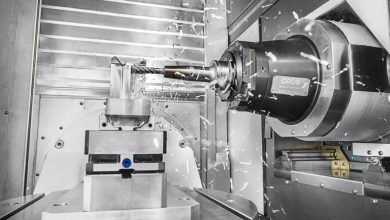5 Inherent Qualities of Great PPC Specialists

Each discipline has its own heroes, the individuals who have paved the way and set the standard for future professionals. There are distinguishing characteristics of exceptional PPC specialists. Daily management, interacting with customers, and information dissemination all benefit from these traits.
These traits are especially significant since they encourage taking a broader perspective and finding solutions to problems that others don’t even realize, they have.
Here are five traits shared by the most effective PPC experts:
Displays critical thinking skills
In other words, what does it entail to be a critical thinker? When you start planning your spring PPC advertisements in the autumn, do you do so with a critical mind? On the other hand, do you demonstrate critical thinking when you look at a report and try to guess what your client will want to know before he asks?
These are examples of what I call “critical thinking,” but only in a narrow sense. Questions of a broader and more global nature could be:
What do the preliminary trends suggest for the coming spring?
Should I provide the client with a breakdown of the costs?
In comparison to past months, how has my PLA exposure changed as a result of the new Google Shopping campaigns?
To what extent did paid search assist different types of advertising?
In order to stay one step ahead of the competition, critical thinkers practise future-oriented thinking. For instance, very few people were talking about feed optimization when Google Shopping initially became a fully paid marketplace. Having a clean, well-organized feed became increasingly vital as Shopping developed.
Those who saw this change coming were able to begin using more sophisticated strategies.
Intelligent people who can think critically don’t accept anything at face value. Maybe a company’s sales dropped drastically in July 2014 compared to July 2013. Just two of the ten initiatives experienced a drop in conversion rates, while the other eight saw no change. Then we need to know what happened to cause such a drop. To all appearances, some keywords fared better than others last year, even though the ads themselves were largely unchanged. Possible explanations include a decline in the keywords’ popularity or a rise in their price.
The analytical mind will probe for further clarification. It’s possible that the company was able to undercut its rivals because it was the sole distributor of the goods in question or because it offered the product at a significantly lower price. For example, the keywords may have performed better in 2013 due to external variables such as the season or increased popularity. Maybe a recent website update had an adverse effect on conversion rates.
A critical thinker digs further into whatever they’re investigating.
Beyond PPC-focused
The most effective pay-per-click (PPC) marketers consider all aspects of digital advertising. PPC advertising affects numerous channels, and the same is true for other channels. As an illustration of the current state of search engine optimization, consider the various changes made in the past few years with the express purpose of improving users’ access to organic search results. Some businesses have seen a precipitous drop in organic search traffic, necessitating a shift in marketing budgets toward paid advertising.
Paid results now dominate the SERPs in both size and prominence, thanks to ad extensions and PLAs. If you want to maximise the profitability of your pay-per-click advertising efforts, you need to be aware of this shift.
PPC also requires a grasp of how your site’s continual adjustments contribute to performance. The focus here is on increasing conversions through various CRO strategies. Whatever transpires after a click need to be given equal (if not greater) significance as the click itself.
The next step is to examine the website’s redesigns and routine updates. For instance, the URL structure of a website might impact how difficult or simple it is to compile remarketing lists.
If you want to be a great PPC Specialist, you need to know that PPC is just one piece of a much larger ecosystem.
Good writer
Although PPC is frequently view as a data-driven process, the written word plays an equally important role. The average pay-per-click (PPC) expert probably writes several thousand words each day, between work-related tasks, emails, blogs, and other items. A high level of writing skill is essential for success in the role of PPC Specialist, thus it stands to reason that the best candidates will have this skill.
Time lost is the most significant result of poor writing. Readers are often left scratching their heads after reading a poorly written email or blog post. A client who receives an ambiguous email will often respond asking for further information, wasting time for both parties. A blog editor will spend time revising the piece. As a matter of fact, poorly written content is just a waste of time.
I alluded to this earlier, but anticipating problems before they arise is the best way to save time on writing. It’s important to answer any questions a client could have in the first email you send them.
If you inform a client, “Leads are down 30%,” without providing an explanation, the client’s natural next query is likely to be, “Why are my leads down?” Or, if you’re blogging, take the opposing viewpoint. Consider the reasons why some readers might disagree with you and address those concerns head-on.
Although it’s impossible to foresee every possible follow-up question, you can save time by being prepare with answers.
Likes To Give Her Opinions
The finest PPC Experts aren’t afraid to talk about what they’ve learned with others. Blogs, online seminars, and professional gatherings are common venues for such information dissemination. Communicating with others can also involve taking part in online discussions via platforms like Twitter and LinkedIn.
Sharing is vital because it displays the unpaid time and effort that PPC Expert put into their work. It’s not a quick process to whip up a new blog post or PowerPoint presentation. Volunteering one’s own time in order to educate others is an act of selflessness. Though I have no doubt that these professionals take pleasure in their work, I would still classify the time they spend on it as “lost time,” because it takes them away from something else.
My final criterion for what makes a superb PPC expert is the propensity to impart knowledge to others.
Has a Natural Drive for Pay-Per-Click
A person’s enthusiasm for PPC is easy to spot. You can see the joy on their faces as they discuss recent developments in the industry, and you know they can’t contain their excitement whenever a new beta becomes available. They enjoy PPC conversations even when they are extremely busy.
An eagerness to grow and develop is shown in one’s level of enthusiasm. In a field as dynamic as yours, enthusiasm is essential. To put it simply, it has to be done. People working in pay-per-click advertising (PPC) need to constantly challenge themselves intellectually.
Conclusion
Consider the best PPC experts in the business and ask yourself if any of these traits are missing. Top-tier PPC experts are rounded people with a genuine interest in making their field better.




